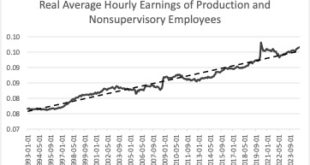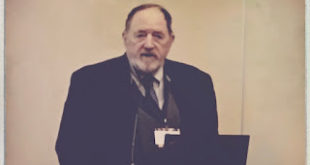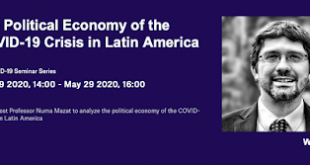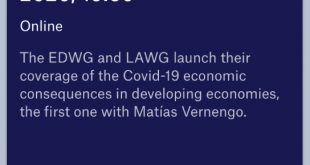Almost everybody these days accepts at face value that the result of the election was heavily determined by negative perceptions about Bidenomics, and that, in turn, resulted from inflation. Inflation was high (it wasn't, at least not that much), and people were pissed off. This is not just Larry Summers, who had argued (incorrectly in my view) that inflation was caused the large fiscal packages of an excessive generous government.In the heterodox camp, many have suggested that more should...
Read More »The Gift of Sanctions
Jamie Galbraith presented, at the EPS session at the ASSA Meetings in San Antonio, the paper published by INET. As he said there: "Despite the shock and the costs, the sanctions imposed on the Russian economy were in the nature of a gift." A type of invisible hand effect, by which the unintended effect of the policy that should supposedly benefit US allies (Ukraine) has the unintended effect of helping its alleged enemies (Russia).From the abstract:This essay analyzes a few prominent Western...
Read More »Unmasking Inflation: Why the Conventional Wisdom is Failing Us
[embedded content]Interview I gave for INET in January. From their website:Matías Vernengo navigates the complex topic of inflation, discussing its implications on workers, and the economic policies that can potentially mitigate these effects. He explains the inflation of the 1970s and compares it to the more recent inflationary scenario provoked by global events. Vernengo evaluates the mainstream explanations - demand-pull and cost-push theories - and presents an alternative, heterodox...
Read More »The Political Economy of the COVID-19 Crisis in Latin America
Following my talk on the same topic, on the same venue, now someone that might know a bit more about what's going on, particularly in Brazil. Professor Mazat will talk this Friday, and I highly recommend it. To register go here. Btw, Numa is Professor of Development Economics in the Institute of Economics at Federal University of Rio de Janeiro, my alma matter.
Read More »The Economic Consequences of Covid-19 in Latin America
For more information go to their website.
Read More »La verità viene lentamente a galla: articolo su Il Fatto
Pubblichiamo mio articolo uscito su Il Fatto quotidiano, 8 maggio 2019 col titolo: La cura che creò il malato. L’origine della crisi italiana di Sergio Cesaratto Altro che “mancate riforme”. Dal 1995 la disciplina fiscale e le politiche del lavoro hanno fatto crollare investimenti e produttività La verità viene lentamente a galla. La narrazione che viene dai paesi d’oltralpe è di un’Italia fiscalmente dissoluta. Tale immagine viene purtroppo condivisa anche da parte...
Read More »Norbert Häring — George Soros’ INET, the Trojan horse of the financial oligarchy
Four years ago, I framed it as a question: “George Soros‘ INET: An institute to improve the world or a Trojan horse of the financial oligarchy?” Today I would not use a question mark any more.Frances Coppola came to a similiar conclusion after attending the big INET gathering in Edingburgh in October.… Sleeping with the devil.Real-World Economics Review BlogGeorge Soros’ INET, the Trojan horse of the financial oligarchy Norbert Häring | economics correspondent for Handelsblatt, the German...
Read More »Frances Coppola — Beyond disappointment
Symptoms showing why both deconstruction and inclusion are necessary in economics to avoid cognitive sclerosis.Coppola CommentBeyond disappointment Frances Coppola
Read More »The end of neoliberalism?
[embedded content] Panel at the Eastern Economic Association Meeting with Robert Blecker, Orsola Costantini, Esteban Pérez Caldentey and Mark Weisbrot. The mini symposium organized by Orsola I discuss in the beginning is here, and the papers by Cornell West and Nancy Fraser are here and here, respectively.
Read More »Is there a new “new economics”?
INET has posted a piece by Eric Beinhocker on what he calls the “new economics” [sic]. That used to be Keynesian economics, back in the 1960s. Now it’s a mesh of New Institutionalism, Behavioral Economics, and Complexity Analysis. He argues that: “New economics does not accept the orthodox theory that has dominated economics for the past several decades that humans are perfectly rational, markets are perfectly efficient, institutions are optimally designed and economies are self-correcting...
Read More » Heterodox
Heterodox




